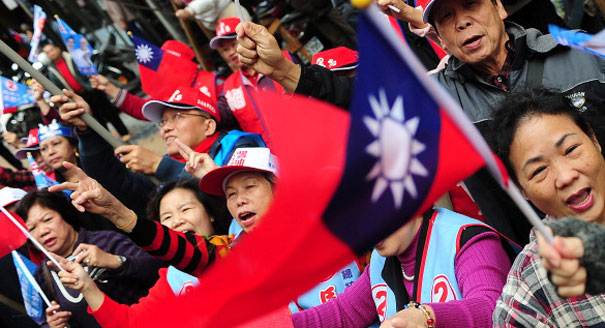With the inauguration of Taiwan President Ma Ying-jeou for his second and final four-year term in May, cross-strait relations appear more stable than they have been in more than sixty years. That does not mean, however, that observers should expect further big steps to improve relations between Taipei and Beijing. We are entering an era of limited aspirations and restrained expectations.
On the home front, by contrast, Ma announced in his inaugural address an ambitious reform program that is already encountering some stiff resistance. Ma repeated his campaign promise calling for a “golden decade” built on five pillars of reform: economic transformation, creating employment and realizing social justice, green energy, invigorating culture, and development of Taiwan’s most important resource, its human talent.
In cross-strait relations, the outlook is only for incremental improvements. Taiwan expects to expand its preferential trade arrangements with the mainland, establish representative offices on the mainland and Taiwan to manage relations, complete an investment protection agreement, expand educational opportunities in both directions, and advance cooperation against crime. Despite their limited scope, these will be politically sensitive and tricky to implement without triggering negative reactions.Taipei also has a reasonable expectation to see the limited “international space” it occupies expanded through cooperation with Beijing. Ma mentioned participating in the “activities” of the International Civil Aviation Organization and the United Nations Framework Convention on Climate Change. He also spoke of preparing Taiwan to participate eventually in the Trans-Pacific Partnership, a negotiating concept that the United States and its leading trade partners hope to turn into a “high quality” free trade agreement. Taiwan is also seeking greater scope for involvement in non-governmental organizations where Beijing has been impeding participation over issues such as nomenclature and identity.
This expectation is reasonable because, before the inauguration, senior Chinese officials indicated they needed a small concession from Ma: that he reassert in some way that Taiwan is part of a greater “one China,” and not an independent Taiwan legally separated from the mainland, as maintained by Ma’s predecessor, the disgraced president Chen Shui-bian.
In his address, Ma said the two sides of the Taiwan Strait are defined as “one Republic of China, two areas.” Beijing authorities understand that Ma must refer to the Republic of China, and not “China” or the “People’s Republic of China,” given the history and context, and recognize that this responds to their expressed hope. In exchange, there will be greater confidence in Beijing that concessions to Taiwan over participation in international activities will not be exploited by Taiwan as demonstrating its greater “independence” from China, as was the fear under Chen Shui-bian.
On the domestic side of the ledger, Ma is braving a hornets’ nest of reactions to his efforts to reform the capital gains tax, the judiciary, and education. He also bit the bullet on rising utility costs, raising prices to consumers frozen before the election, to prevent the government’s effective subsidies from soaring out of control. Together these actions have caused his personal popularity to plummet.
President Ma appears to calculate that by taking painful measures forcefully up front, when his mandate has just been renewed by a 6 percent margin against his opponent in the January election, he will have time to recover as the reforms demonstrate their benefits. If the benefits fail to become apparent, however, he may be laying the foundation for a successful run against his government by the opposition Democratic Progressive Party (DPP), which has chosen a new leader, Su Tseng-chang, who is a pragmatic and dynamic politician and campaigner. There will be multiple local and by-elections to test the two parties over the four years Ma has left in office.
In the recent presidential election, the DPP’s candidate Tsai Ing-wen scored telling points on the growing income gap in a Taiwan that has long boasted of equitability, the excesses in the behavior of some judicial and prosecution figures, and rising unemployment among Taiwan’s youth. To shore up his weaker flanks, Ma’s administration is seeking reform of Taiwan’s low capital gains tax regime, the judiciary’s practices and procedures, and educational content to improve employment prospects for young people.
The flawed execution of capital gains tax reforms has already led to the resignation of finance minister Christina Liu and produced snide comments from interested observers about the skills of those implementing the reform. The judiciary is predictably warning of dangers to its independence, even though outside legal observers have long cited the harmful distance between society and the judicial profession inherent in Taiwan’s system, adapted from the German judiciary of the 1930s.
Finally, education reform has had a checkered history in Taiwan over the past decade and a half. Apart from occasional efforts to politicize it under Chen Shui-bian, tinkering with expectations and requirements for people’s children in a society that truly prizes education is risky business, as it introduces a greater degree of uncertainty. President Ma will need to apply a firmer measure of hands-on control than in his first term if he expects to reap the benefits of the reforms he has initiated.





.jpg)